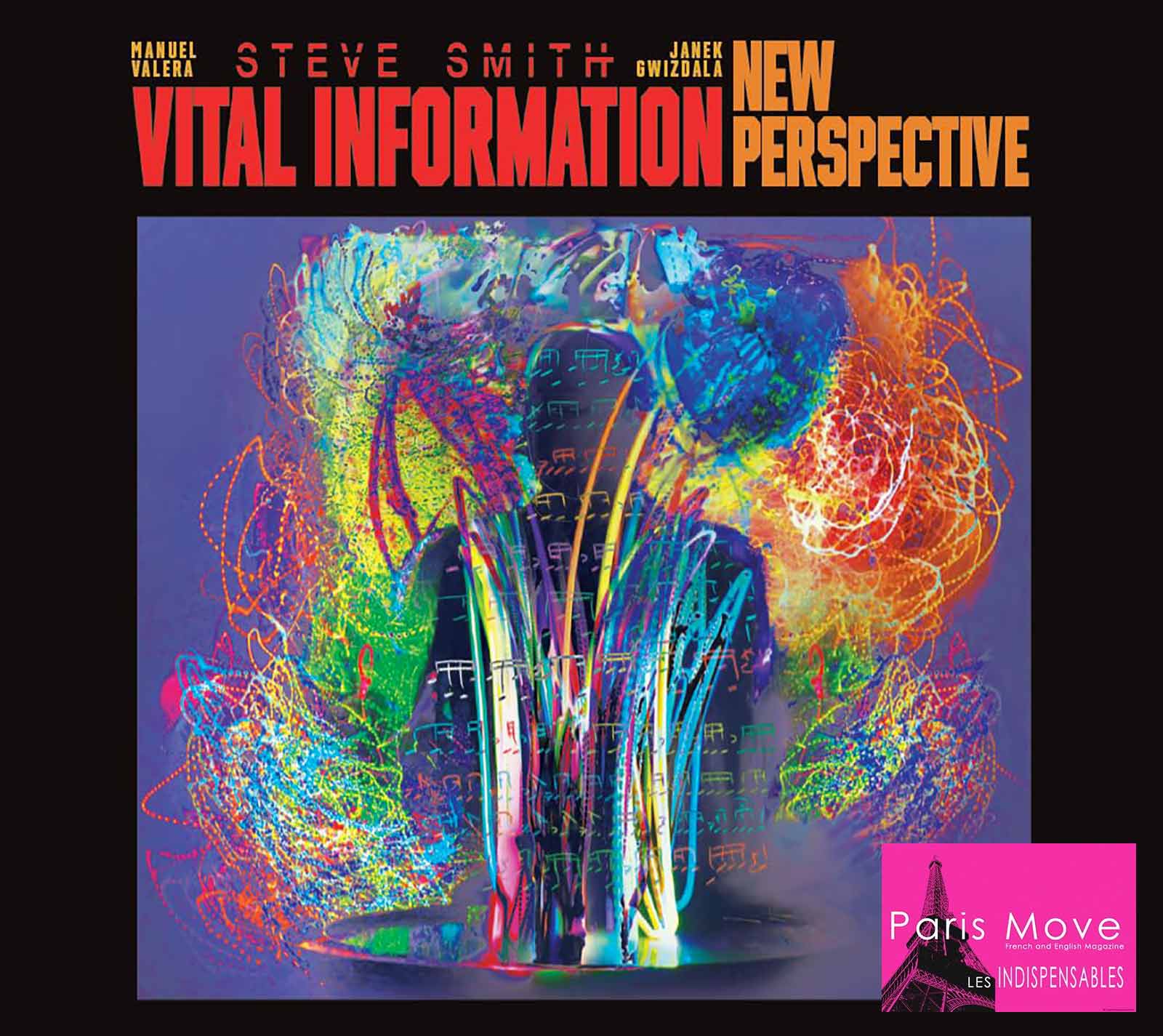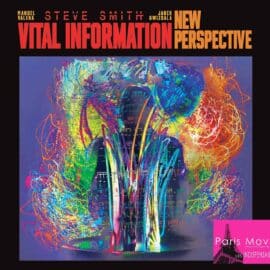| Jazz |

There is something almost paradoxical about the new album from drummer Steve Smith and his trio. On the one hand, it is unpretentious: a collection of original works and carefully chosen pieces that wears its influences openly and makes no grand claim to reinvent a genre already crowded with milestones. On the other hand, it is quietly audacious, because in the hands of musicians of this caliber, even the familiar feels renewed, and even the expected carries a fresh charge of vitality.
Smith is, of course, no stranger to that paradox. His career has been a study in dualities: the arena-rock drummer with Journey who could also slip seamlessly into the rarefied company of jazz’s most demanding improvisers; the Berklee-trained technician with an encyclopedic command of polyrhythms, yet also a player who values restraint and the subtleties of texture. Across more than four decades, he has appeared on stages and recordings that collectively account for over 100 million albums sold, moving effortlessly from the world of pop to the intricate geometries of modern jazz.
It is this versatility that animates the album. From the opening bars, the trio lays down a soundscape that carries echoes of Smith’s long journey: the hard edges of fusion from the 1970s, the lithe improvisations of contemporary jazz, the cosmopolitan grooves absorbed during his time with world musicians such as Zakir Hussain. One hears not a catalogue of styles, but an artist who has digested them so thoroughly that they emerge organically, as part of his natural musical vocabulary.
The trio itself is formidable. Pianist Manuel Valera, whose work with Dafnis Prieto and John Patitucci has earned him a reputation as one of the most versatile keyboard voices of his generation, brings an elegance that leans as much on classical poise as on Latin fire. Bassist Janek Gwizdala, a chameleon of the electric bass with credits alongside Peter Erskine and Mike Stern, provides not only foundation but narrative drive, his lines weaving in and out of Smith’s patterns with conversational ease. Together, the three musicians achieve a balance that recalls the great ensembles of Joe Zawinul or Weather Report, music at once rigorously structured and utterly free, taut yet exploratory.
What distinguishes the album is its sense of pacing. Too often, jazz-fusion can feel like an unbroken sprint, all velocity and pyrotechnics. Here, the musicians understand the necessity of contour. They know when to ignite a blaze and when to let the embers glow. A track like “Open Arms,” stripped down and contemplative, reveals the poetry of restraint. Each player listens deeply, leaving space for silence, shaping the music as much with what is unsaid as with what is played. Such moments stand as reminders that virtuosity is not about the quantity of notes but the quality of their placement.
And yet, when the trio decides to unleash its collective energy, the effect is electrifying. Smith’s drumming, in particular, has a cinematic quality, drawing the listener not only into rhythm but into atmosphere. His choices of cymbal timbres, snare articulations, and phrasing transform the drum kit into a painter’s palette, where each stroke contributes to a larger canvas. He has the rare ability to suggest the intensity of a live performance within the controlled environment of a studio, an ability born of decades on the road, learning how to summon and sustain energy night after night.
If there is a thread that binds the record, it is identity. While attentive listeners may catch fleeting gestures that nod to the history of fusion, echoes of Mahavishnu’s fire, the lyricism of Steps Ahead, or the rhythmic audacity of Tribal Tech, the trio never lingers in imitation. These are not references meant to impress but winks exchanged with fellow travelers, acknowledgments of a shared lineage. The music ultimately speaks with its own voice, and that voice is confident, coherent, and unmistakably its own.
The achievement of this album is not simply that it delivers exhilarating performances, though it certainly does. Its deeper accomplishment lies in the way it bridges eras. It makes audible the continuum between the raw, pioneering energy of 1970s fusion and the global, hybrid sensibilities of 21st-century jazz. This is not a nostalgic look backward, nor is it a desperate lunge toward novelty. Instead, it is something rarer: a work that situates itself in conversation with the past while remaining resolutely contemporary.
For Smith, this is both culmination and continuation. His training at Berklee with Alan Dawson and Gary Chaffee, his work alongside legends from Ahmad Jamal to the Brecker brothers, his years in the pop spotlight and the jazz underground, all of it converges here. But rather than feel like a résumé recitation, the album exudes the unforced ease of musicians who have nothing left to prove, only music left to play.
Perhaps that is why the record resonates so strongly. It offers not the spectacle of virtuosity for its own sake, but the enduring pleasure of artists serving the music itself. It reminds us that the greatest drummers, the greatest musicians, are those who can adapt without erasing themselves, who can listen as intently as they play, who can bridge divides of style, time, and genre simply by being true to the music in front of them.
In that sense, Steve Smith and his trio have given us more than an album. They have offered a demonstration of what it means for fusion to live up to its promise: to merge, to connect, to create continuity across difference. The result is an album that feels at once grounded and expansive, reverent and forward-looking. It may not claim to revolutionize the genre, but it achieves something just as valuable: it makes the music feel alive, urgent, and necessary, here and now.
Thierry De Clemensat
Member at Jazz Journalists Association
USA correspondent for Paris-Move and ABS magazine
Editor in chief – Bayou Blue Radio, Bayou Blue News
PARIS-MOVE, September 28th 2025
Follow PARIS-MOVE on X
::::::::::::::::::::::::
Musicians :
Steve Smith (Journey/Steps Ahead) – drums
Manuel Valera (Dafnis Prieto/John Patitucci) – keyboards
Janek Gwizdala (Peter Erskine/Mike Stern) – bass
Track Listing :
Don’t Stop Believin’
The Perfect Date
Charukeshi Express
Open Arms
Sumo
Eight +Five
Who’s Crying Now
Three Of A Kind
Josef The Alchemist

